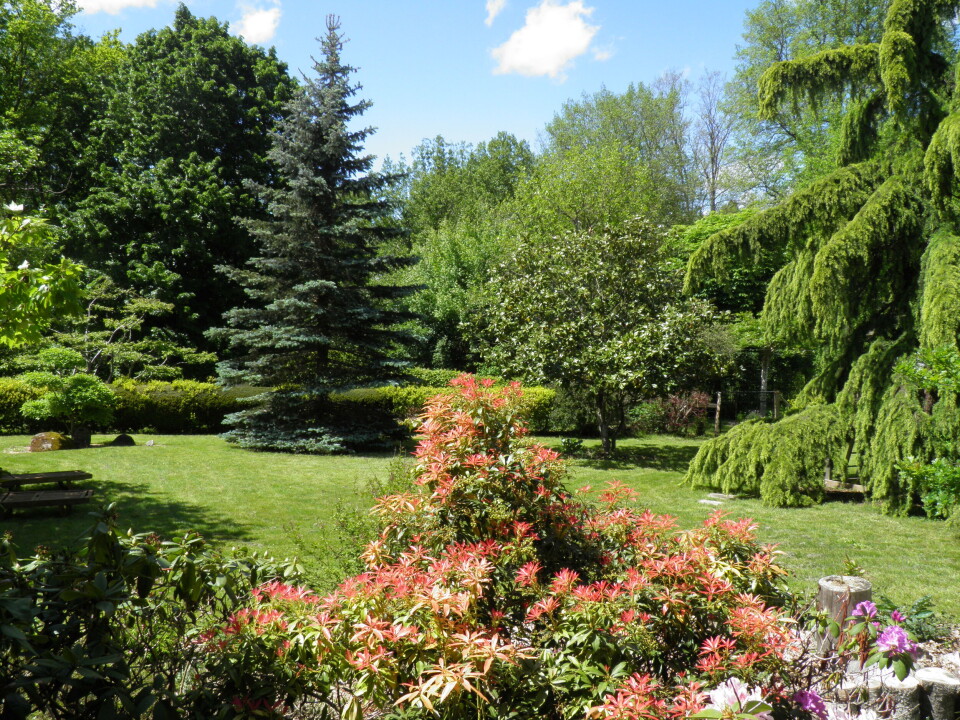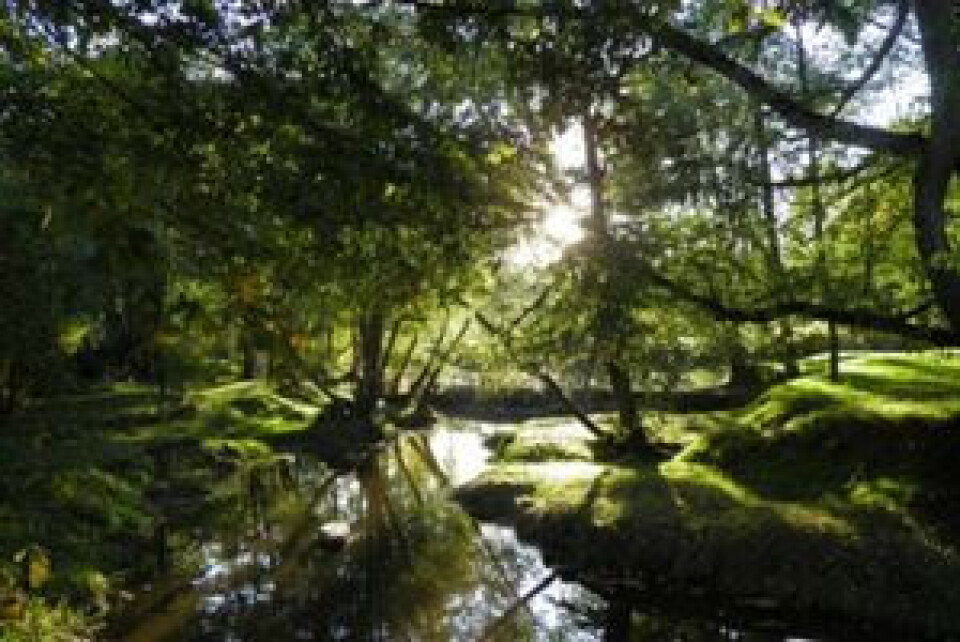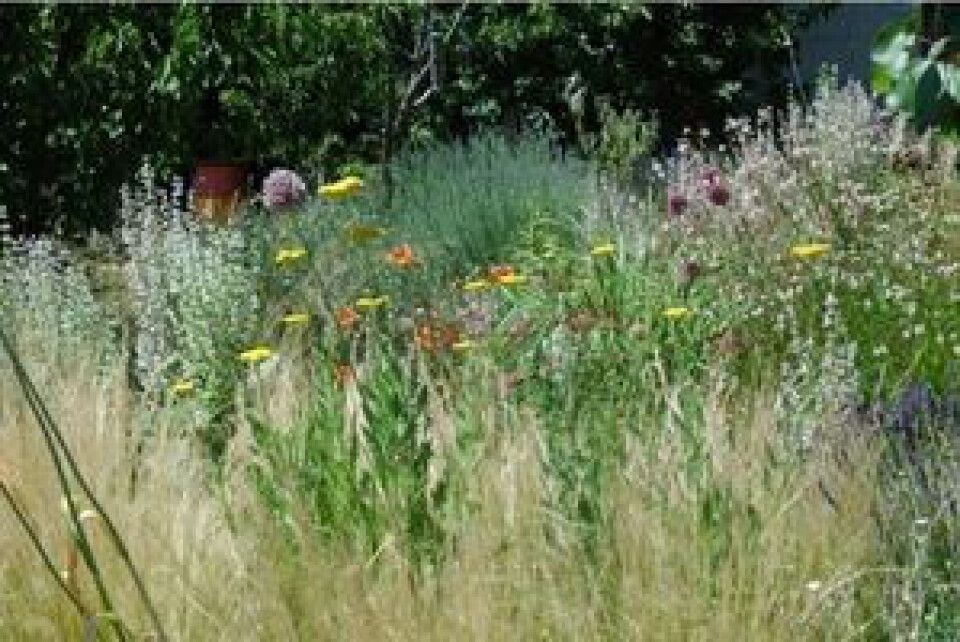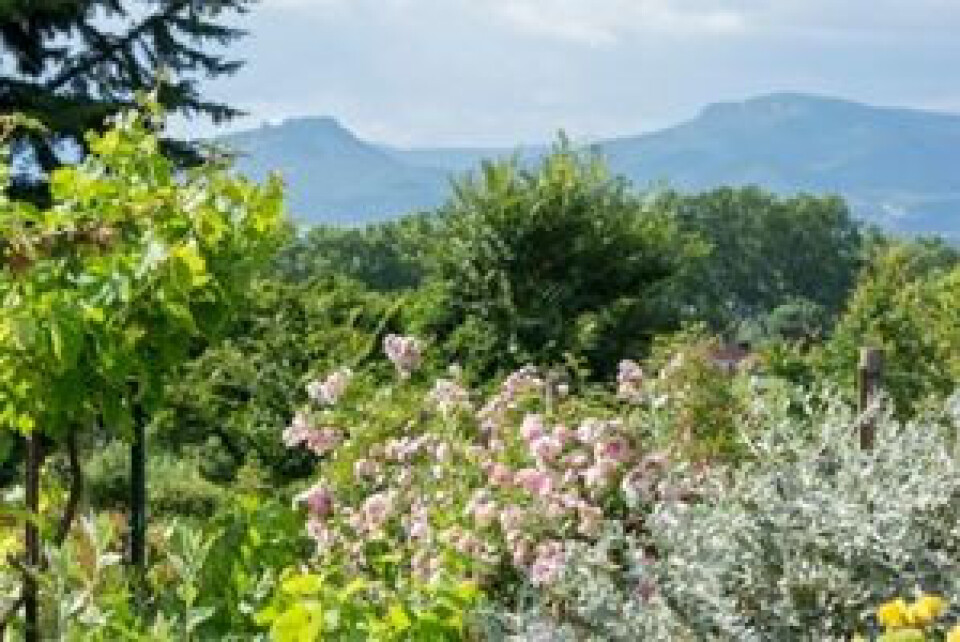-
France’s wild garlic season is here – but foragers should beware toxic lookalikes
Spring brings the fragrant plant to woodlands nationwide. We explain what to look out for
-
Let your lawn grow, water for birds: how to help wildlife in your French garden
‘It is acceptable to have untidy hedgerows,’ says biodiversity spokesperson.
-
How to help hedgehogs in your garden in France
Follow these tips to create a healthy ecosystem for this protected species
Open Gardens to visit for autumnal colour in Auvergne and Hérault
A woodland paradise and a Mediterranean haven - two passionate gardeners open their gates as part of the Jardins Ouverts scheme

With luck, late summer and autumn rain have now refreshed the landscape and autumn colours will be very special in our October gardens.
It’s a perfect month for garden visiting and many of the gardeners opening ‘by appointment’ under the Open Gardens scheme will be happy to welcome you if you ring in advance.
Woodland paradise in Auvergne-Rhône-Alpes
Rudy Holierhoek’s garden in the Allier is open Sunday, 30 October, from 10H to 17H (Lieu-dit Renaud, Les Anciens Abattoirs, 03190 Hérisson. Tel : 04 70 06 61 54)
It makes a perfect autumn visit, since this is the garden of a woodland and tree aficionado.
Rudy arrived in France with his parents at the age of eight and was brought up on a market-gardening farm very close to where he now lives.
Captivated by the landscape in the valley of the river Aumance, he took his love affair with the plant world to horticultural college at Saint-Germain-en-Laye, before setting up his own company specialising in landscaping and garden maintenance.
Read more: Shade and chic: France’s history of planting trees in a row
Site big enough to build a dream
Since 1999, together with his wife Pierrette, he has breathed new life into the site of the old communal abattoir of Hérisson (which ceased to operate in the 1970s).
The diverse buildings they fell for offered space for gîte, family home and workshops, as well as promising a woodland paradise of a garden on the river bank.
As is often the case, it was the enclosed area around the buildings that received first attention.
Trees for autumnal colour
After honing formal areas and a potager into existence, Rudy instinctively began to plant trees for shape and shade, focusing particularly on his love of autumn colour.
There should be fine colour from Liriodendron tulipifera, Parrotia persica, Cotinus coggygria, Catalpa bignonioides, and Prunus serrulata.
In the most formal area, you will enjoy meeting what Rudy calls his ‘three girls’, trees planted to commemorate the birth of his two daughters (Magnolia grandiflora and Cedrus deodara) and the ‘renaissance’ of Pierrette after a heart attack in 2001 (Picea pungens).
Designer hedging
There is also some rather remarkable hedging that results from an epoque when Rudy became bewitched by ways of dividing and making sense of a large garden: laurels cut into fan shapes, tightly clipped box and yew, and a magnificent hornbeam hedge in a wave design, testimony to how well very controlled landscaping ideas fit perfectly into a wilder scene, given a sensitive designer’s eye.
Rare White Elm is a mascot
Most enchanting, Rudy feels, are two small islands created naturally as a result of an artificial barrage on the far side of the river.
With time, flotsam and jetsam from the main river came to rest and built the islands, which Rudy simply tidies.

Enchanting woodland in Rudy’s garden; Photo: Rudy Holierhoek
Here grows Ulmus laevis or European White Elm (‘orme lisse’ in French), a rather rare species now 35m in height and, Rudy says, almost the emblem or mascot of the garden.
Its nearest neighbour is an ancient, dead poplar.
Of massive girth, the structure has been left to decay and provide wildlife shelter and nesting sites. An example, he says, of ‘life after death’.
Wild new project
Rudy tells me of his most recent project, resulting from the purchase of a small parcel of land for his daughter’s horse in 2011.
“Here I’m making an ‘agro-ecological’ garden.
“One part will be wild forest, another for animals, another to work as a market garden, another as a permaculture forest.”
Plenty of food for thought on the banks of the Aumaunce.
Mediterranean planting in Hérault
In her Mediterranean garden, Catriona McLean (Le Jardin de Rossignols, 34230 Popian, Hérault; tel 06 32 53 34. Open by appointment.) has translated her lifelong passion for design in many forms into a remarkable garden.

Grasses are important for movement in Catriona’s garden; Photo: Catriona McLean
From knitwear and pottery
Her first incarnation as a fashion designer in Paris, specialising in knitwear, took her up to live in an old house on the Scottish borders.
Much later, a newer version of herself – as a determined and successful business woman marketing Anduze pots throughout the world – was drawn to move permanently to Languedoc, close to the area where the Anduze potteries are found.
She still runs the business – with the help of a friend now, since the passing of her husband in 2020 – specialising in high-end garden tools, furniture, and, of course the pots, which are now joined by items imported from Italian potteries for her Catriona McLean Collection.
The canal provides water
Catriona tells me: “When we first moved down to Montpellier in 2004, we bought a town apartment and after only a week I was saying that I needed a garden.”
They stumbled quickly on just the right place – an area of 3,000m2, bounded by the Canal de Gignac, which provides any watering required.
All that existed was a little cabane in an enchanting, private spot with views up into the hills beyond.

Hill views from the garden; Photo: Philippe Perdereau
The tricks of Mediterranean gardening
Immediately Catriona was plunged into the world of Mediterranean gardening, joining the Mediterranean Garden Society and making the acquaintance of Olivier Filippi and his wife, Clara, who run a garden and nursery business close to Montpellier.
“People who know the garden, know that I garden in Olivier’s style,” comments Catriona.
When he visited le Jardin de Rossignols, Olivier showed Catriona how to plant each subject in a saucer-shaped depression, which would hold any water or rain the plants are lucky enough to receive.
Read more: Five drought management tips for gardens from a French plant expert
“And I place plants very closely together. Even when there has been no rain, if you move away the foliage, you can see that the ground below is moist.
“Any dew that falls overnight accumulates and is retained in that little microclimate.”
Grasses create movement
Her plants are the classic Mediterranean subjects: mounded shapes of lavender, cistus, artemisia, with grasses such as Stipa planted to create movement – something that designer Catriona feels is crucial to any good garden.
Catriona’s business flourished in tandem with the garden, as she travelled to horticultural shows from Lyon down to Nîmes and Nice.
She readily admits that the garden was created partly as an area to showcase the business – pots, garden furniture and other features.
The area around the greenhouse, polythene tunnel and little cabane is thick with favourite plants in Catriona’s wonderful pots, the only area in the garden in which water is artificially given.
Subjects such as Begonia grandiflora, Echeveria and Aeonium are great favourites and all should be strikingly inspiring in the October light.
Related articles
Drought measures extended into October in south-east France
I did not get permission for veranda at French home - what do I risk?
What can I do about neighbour’s cat leaving mess in our French garden?
























